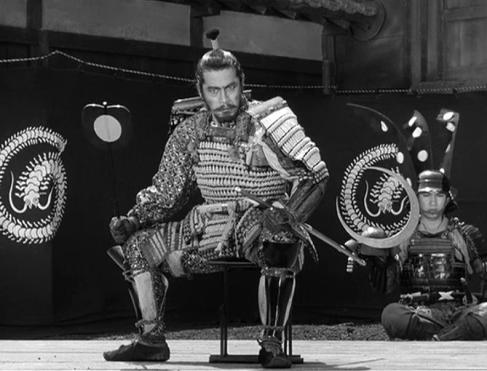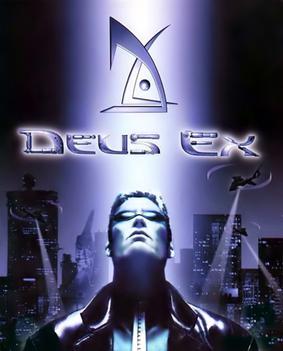The lesson of the impossible choices offered up by the gods in Greek tragedies is not how to find a clever solution. It is not how to weasel your way out of a contract. You can’t outsmart the gods. Thinking you can will truly only make it worse for you, and that you would even consider that in the first place is probably why you are in this unenviable position at all. You cannot alter your fate. But you CAN dictate the manner in which you meet it. In Seven Against Thebes, Eteocles knows that his brother Polyneices is going to lead the assault on one of the seven gates of Thebes, and he knows that he and his brother are fated to die at each other’s hands, so he deliberately takes over the defense of the gate his brother is attacking. Instead of trying to escape his destiny he sets the terms under which it will be fulfilled.
In the basis for our story, Agamemnon’s impossible choice on Aulis at the onset of the Trojan War is: Kill his daughter, fulfilling his familial curse, incurring the pollution of kin-slaughter, and infuriating his wife, but sail to Troy at the head of the greatest army in history. Or spare her, and by so doing, betray his brother Menelaus and break his oath to Tyndareus and all of Helen’s suitors, earn a reputation for faithlessness, and then be forced to watch Odysseus assume command of the expedition and sacrifice his daughter anyway. And possibly be killed himself for violating a sacred pact. Similarly, Iphigenia’s choices, such as they are, are: beg and plead and resist the sacrificial knife, forcing her father to drag her to the altar, or accept her fate and try to find meaning or significance in it. There are no ‘good’ options in this position. There isn’t even a ‘less bad’ option. All that can be done is find a way to come to terms with the inevitable.

I was pondering this fatalistic worldview while I was at the gym the other day, watching my Stories. I watch Star Trek while I get my #steps in on the elliptical, it is the carrot I use to force myself to go to the gym. It works…sometimes. The point is, I was watching Star Trek and Data was singing Gilbert and Sullivan and it occurred to me that, while Star Trek is both highly literate and famously concerned with no-win scenarios, I could not recall any mention of the Greek tragedians or the canon of Greek tragedy.* As a man who is obsessed a little too concerned with demonstrating how well-read I am, this struck me as a real missed opportunity for the writers to score some deep cuts. My only conclusion is that Euripides, Sophocles, and Aeschylus must not appear on the curriculum at Starfleet Academy.
There is, unfortunately, what I believe to be strong evidence to support my pet theory that the Commandant of the Academy has struck the Tragedians from the reading list. In the episode “Peak Performance”, Data is soundly beaten at some sort of milking udder-based strategy game by a Third-level Grandmaster and descends into a deep funk, only able to be roused by Captain Picard telling him that to do everything right and still lose is not failure, but the human condition life. Data, a voracious student of human culture with perfect recall, would certainly have recognized this lesson from the humbling of Heracles, were he familiar with it. In Euripides’ Heracles the title character, in his moment of greatest triumph after completing his final Labor, is driven mad by Hera and kills his own family. As he sits in despair amidst the wreckage he is comforted by his friend Theseus, who tells him that the gods are not wiser or better than humanity, merely stronger. Data should also have learned this lesson from Marvel Studios’ The Avengers: Infinity War, in which Thanos the Mad Titan, having experienced this sort of dismaying defeat in the past, comprehensively but empathetically metes it out to the defenders of the Infinity Stones.** I suppose the Infinity Saga has been struck from the curriculum as well. What’s more troubling is that Data didn’t even recall this lesson from the time he sat for the Kobayashi Maru, a test that is supposed to explicitly teach how to cope with failure and defeat. [It is possible that by the 24th century, the Kobayashi Maru test has also been removed from the curriculum. Like all tests, it only works if the contents are a surprise, and it having become a well-known shorthand for a no-win scenario negates its effectiveness. Its function may now be served by the Psych Test portion of the Academy Entrance Exam, which is instead personalized to the applicant but similarly has no right answer and gauges the testee’s response to a dangerous scenario -KH]

Star Trek is not shy about wearing its references on its sleeves. A dozen or more episodes have Shakespeare quotes as their title. More importantly, it is abundantly clear that it is the characters themselves, not merely the writers, who are so aggressively erudite. One presumably quite well-worn Complete Annotated Shakespeare serves as set-dressing in Picard’s ready room, Data’s quarters, and Khan’s shelter on Ceti Alpha V. There are multiple episodes in which characters are rehearsing or directly quoting Shakespeare to each other, because if you have access to Sir Patrick Stewart for your science fiction television program you should cram as much Shakespeare into his mouth as you can. The Enterprise, flagship of the Federation, hosts art classes, chamber concerts, and poetry readings, the Cerritos entertains salons and transcendental meditation, and the Discovery and NX-01 screen classic films. In The Wrath of Khan, Kirk, Spock, and Khan bandy back and forth quotes from A Tale of Two Cities and Moby-Dick, while in Deep Space Nine Sisko and Eddington trade barbs from Les Miserables. Captain Picard uses the epic of Gilgamesh to find common ground with the Children of Tama in one of the best episodes in the series’ history. Data and Geordi’s preferred holodeck recreation activity is Sherlock Holmes detective stories, while Picard unaccountably favors a deeply lame generic hardboiled detective series called Dixon Hill [presumably because Dashiell Hammett’s far superior Continental Op stories were still under copyright -KH] Riker is an amateur trombonist and jazz aficionado, a genre that his successor Captain Shaw scorns as overly loose and improvisational, favoring the structure and fidelity to form and meter of the Romantics. In one of my company-mates Jon Reynolds’ favorite episodes, noted schlemiel Lieutenant Junior Grade Reginald Endicott Barclay III has been cast as the title role in a production of Cyrano de Bergerac, a spectacularly incisive bit of casting by the Enterprise’s Chief Medical Officer and Performing Arts Chair Dr. Beverly Crusher. The nerds who comprise the officer corps of Starfleet are open about their interests and are not shy about indulging them. If they had been exposed to the Greeks, I strongly believe they would have mentioned it.

Starfleet talks a big game about coping with failure and rising to meet it, but in reality their philosophy doesn’t mesh with Greek fatalism. You can’t change the conditions of the test in a Greek tragedy. Don’t get me wrong, Starfleet officers have grit in spades. They don’t back down and they honor their promises or die in the attempt. But the Greeks are too dour for the bright and optimistic fully automated luxury Communist future that Star Trek envisions for the Federation. To open another whole entire kettle of worms so close to the end of this blog post, Starfleet are more like hobbits; cheerful peaceful lovers of luxury, but doughty at bay, to quote the Professor. They love their comfort so well because they can go without it, and can bear terrible privations, secure in the knowledge that their warm cozy home is waiting for them if they can just get through it.

The Klingons, on the other hand, live their lives in exactly the sort of loud, bold, expressive, emotionally charged manner that Euripides and his fellows describe. Shakespeare has fared very well in translation to the Klingon (so well that some overly-enthusiastic Klingon patriots even claim The Bard as one of their own!) and I imagine that the theatregoers of Qo’noS would find even more to appreciate from The Oresteia or Ajax. Or, just maybe, from OUR upcoming performance of Iphigenia, an adaptation of Euripides’ Iphigenia at Aulis and Jean Racine’s Iphigenie, that we are excited to open next week! Tickets are available HERE.
*I was eventually able to find a single mention of Euripides in Star Trek, a throwaway line in the episode “Pen Pals”. Data posits that Commander Riker, after making an unusual ‘grand design of the Cosmos’ suggestion in support of the Prime Directive, could perhaps quote from the Greek tragedian in support of his argument, before dismissing the entire discussion as rhetorical and irrelevant to the life-and-death stakes of the situation. This suggests that Data’s [shallow -KH] interpretation of the Greek tragedies dismisses them as little more than parables about predestination and the will of the divine, lacking deeper emotional substance or thematic resonance. If this is the sad state of dramaturgical rigor in the Classics Department of Starfleet Academy I am not surprised they no longer teach the Tragedians.
**I owe a credit to John Hodgman for this point about the theme of failure in Infinity War, in a guest spot on this episode of Blank Check.

